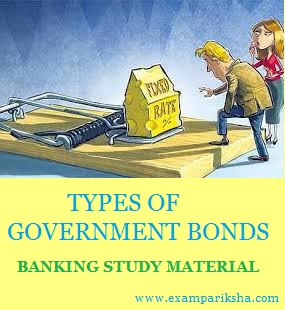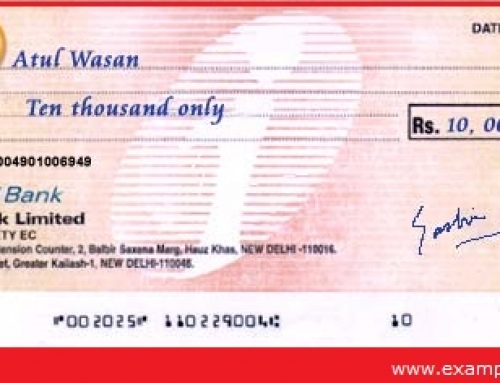A Government security is actually a tradable instrument that is issued either by the Central Government or the State Governments. The government bond acknowledges the Government’s debt obligation towards the buyer with their original maturity at one year or more. These Government securities carry no risk of default practically, therefore, they are called risk-free gilt-edged investment instruments.
There are following types of Government Bonds:
I. Dated Government securities:
- The Dated Government securities are basically long term securities with a fixed or floating interest rate.
- They are issued at face value(amount paid to the holder at maturity).
- Coupon/interest rate is fixed at the time of issuance of the security, and hence, remains constant till its redemption.
- The tenure of the security is fixed at the time of issuance.
- Interest /Coupon payment is done on a half yearly basis over its face value.
- The security is redeemed at par (face value) at its maturity date.
II. Zero Coupon bonds :
- Zero Coupon bonds are those securities that are issued by the government at discount to face value but redeemed at par/face value.
- The Government of India used to issue zero coupon bond in the nineties. It has not issued such securities after that.
- They are issued at a discount to their face value and redeemed at par (face value) on its maturity date.
- The tenure of the security bond is fixed.
- These securities do not carry any coupon/interest rate.
- The Returns: The difference between the issue price (discounted price) and the face value is the return on this.

III. Partly Paid Stock :
- Partly Paid Stock is security where payment of the principal amount is done in installments over a given period of time.
- These stocks are meant to meet the investors’ needs with regular flow of funds as well as the need of the Government at times when it does not need funds immediately.
- These are issued at face value, but this amount is paid by buyer in installments over a specified time period.
- Coupon/interest rate is fixed at the time of issuance, and then remains constant till the redemption.
- The tenure of the security is fixed.
- Interest /Coupon payment is made on a half yearly basis on the face value of the bond.
- The security is redeemed at par (face value) on the maturity date of the security.
IV. Floating Rate Bonds :
- Floating Rate Bonds are those securities which do not have a fixed coupon rate/interest rate.
- The coupon rate is re-set at the pre-announced intervals (such as, every six months or one year).
- Floating Rate Bonds were first issued in September 1995 in India. After that they have been issued many times.
V. Bonds with Call/Put Option:
- Bonds that are issued with features giving optionality.
- Optionality features that the issuer can have the option to buy-back (call option) or the investor can have the option to sell the bond (put option) to the issuer during the currency of the bond. This gives flexibility.
- The optionality on these bonds could be exercised after the completion of tenure of five years from the date of issuance on any coupon date thereafter.
VI. Capital indexed Bonds :
- Capital indexed Bonds are securities where interest rate is a fixed percentage over the wholesale price index(WPI).
- These coupon rates provide investors with an effective hedge against inflation.




